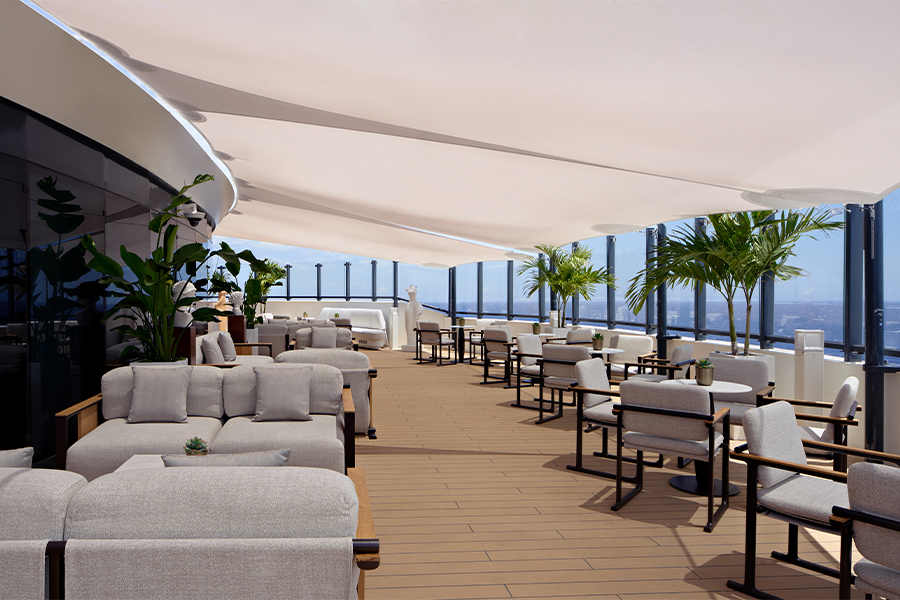Independent hotels come to terms with the future, Ian Schrager heads to the West Coast, and Virgil Abloh takes his talents to Ikea (of all places). We highlight this and more in our weekly wrap-up.
Ian Schrager’s EDITION brand lands in La La Land

EDITION’s much-anticipated California debut gives Ian Schrager a chance to show off the brand’s high-end, ultra-luxe vibe on the West Coast. Set to debut next month, the West Hollywood property won’t stray too far from what makes EDITION hotels highly coveted and admired. Teaming up with longtime friend and collaborator John Pawson, Schrager will imbue the hotel with his signature style—timeless design mixed with a modern, edgy appeal. Like all Schrager’s EDITION hotels, F&B plays a prominent role. In fact, the signature restaurant Ardor will be helmed by the Michelin-starred chef John Fraser, showcasing a vegetable-focused menu. “We aspire to be the best hotel in California, that has always been our approach. With architecture, design, entertainment, and service, we try to offer something that people have never experienced before,” Schrager said in a press release.
The cult-like appeal of lifestyle brands begins and ends with Soul Cycle

Brands are employing cult-like tactics to ensure loyalty, “but just as believers can build a brand, they can tear it apart,” writes Fast Company. Consider the rise and fall of Soul Cycle, after Stephen Ross, owner of the $60 billion real estate empire Related Companies (which owns Soul Cycle) threw a fundraising lunch this summer to support Trump’s presidential campaign. Avid riders canceled memberships and Soul Cycle had 13 percent fewer U.S. customers make purchases in August than a year prior, according to the article. “The company’s deeply personal connection to its customers—its vaunted “cult brand” appeal—made their sense of betrayal more profound,” the magazine writes. For every cult-like tactic that works—think Airbnb’s love bombing approach derived to the Unification Church technique—the betrayal was even greater. “SoulCycle’s predicament, writes the magazine, “is a warning to other brands.”
A better future is on the horizon for the oceans

Perhaps the highly profitable cruising industry can take note of the steps the shipping industry is taking to reduce its environmental footprint. According to reporting by Grist, there’s “renewed determination” amid international pressure to act on climate change. The first hybrid-electric expedition ship, the MS Roald Amundsen, from Norwegian cruise operator Hurtigruten, for example, is a 530-passenger vessel that “uses large battery banks to supplement the main diesel engines, which reduces the ship’s total emissions by more than 20 percent, according to the ship operator,” writes Grist. For now, countries are expanding research projects and conceiving futuristic vessels like NYK’s dolphin-informed ship with flippers, bionic hull materials, and giant solar panels. “I don’t think there’s any argument any longer about the need to do it,” Diane Gilpin, CEO of the Smart Green Shipping Alliance in England told Grist. “There is anxiety about which is the most appropriate way because nobody wants to make a mistake. But you have to take a risk.”
Virgil Abloh and Ikea make partnership official

The highly anticipated collaboration with prolific fashion designer Virgil Abloh and Ikea will finally hit stores November 1st. The 15-piece limited collection named Markerad (“marked” in English) will take everyday objects and reconstruct them in a cheeky way. Take the “Wet Surface” green-turf. Or the wall clock with the word “Temporary” emblazoned on its center. For those who have been eyeing pieces from the notable designer, the playful items are a twist on contemporary décor, according to Curbed. “It’s about elevating the anonymous, everyday icons that we use without noticing,” says Abloh. “When we put a doorstop on one of the legs of an ordinary chair, we create something unexpected—an interruption.”
David vs. Goliath: Independent hotels come up against major hotel companies

Call it the Marriott effect. As hotel companies continue to acquire smaller hotels and launch soft brands, the death knell might be sounding for true independent hotels, reports The New York Times. Thirty years ago, about two-thirds of all hotels that were independent. Today, less than 40 percent of hotels are independently run, according to hotel data company STR. In the past few years, Accor grew from 14 brands in 2012 to 39 in 2019, picking up companies like 21c Museum Hotels along the way; InterContinental Hotels Group acquired Kimpton Hotels in 2015; and, recently, Hyatt added lifestyle juggernaut Two Roads Hospitality to its portfolio. With increased competition from homesharing “disruptors” like Airbnb, independent hotels are feeling the pressure to stay relevant. While travelers continue to seek out authentic, community-oriented experiences, they also may feel like the soft brands launched by major hotel companies “are boutique enough,” says The Times.



